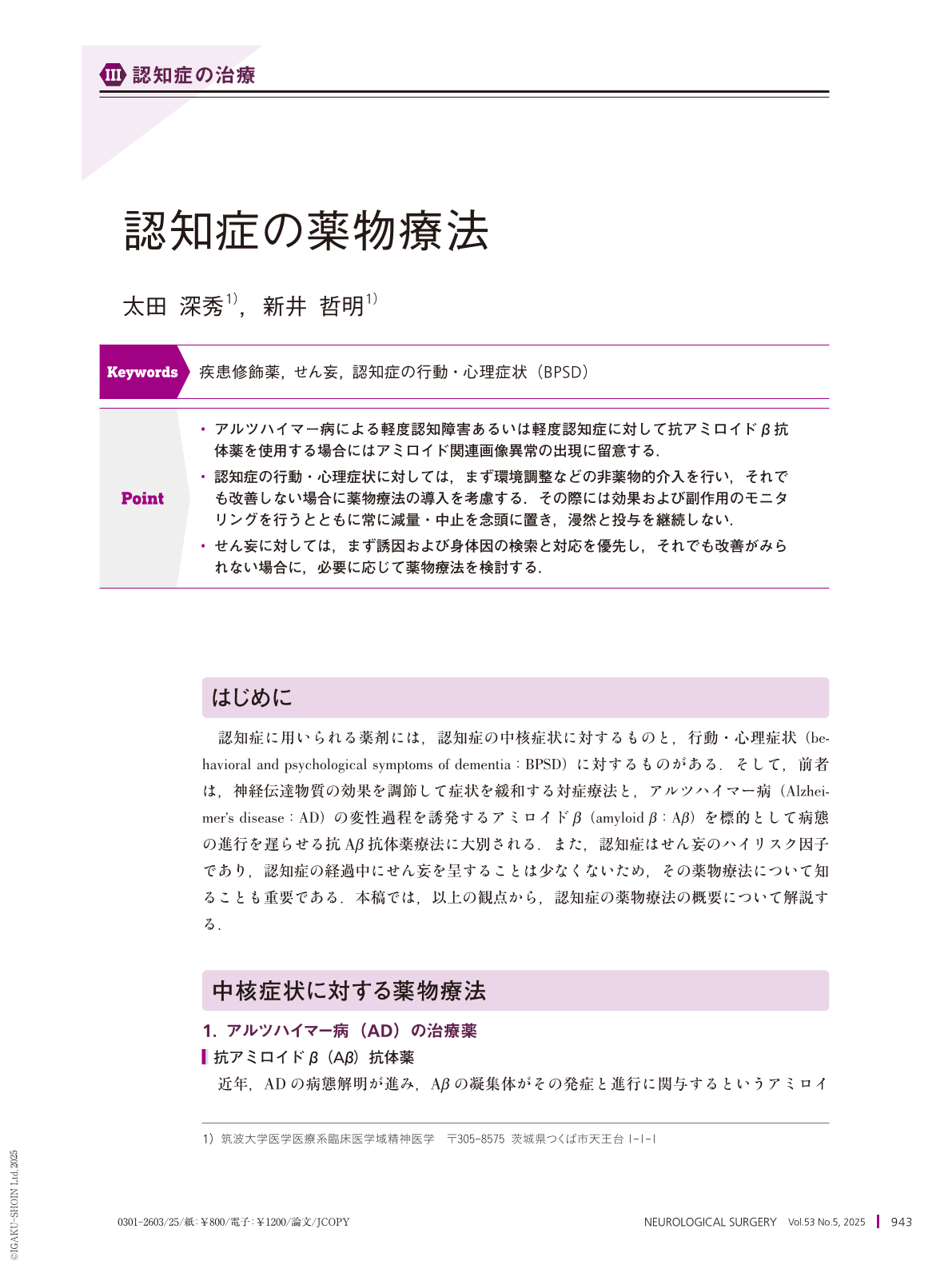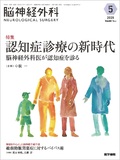Japanese
English
- 有料閲覧
- Abstract 文献概要
- 1ページ目 Look Inside
- 参考文献 Reference
Point
・アルツハイマー病による軽度認知障害あるいは軽度認知症に対して抗アミロイドβ抗体薬を使用する場合にはアミロイド関連画像異常の出現に留意する.
・認知症の行動・心理症状に対しては,まず環境調整などの非薬物的介入を行い,それでも改善しない場合に薬物療法の導入を考慮する.その際には効果および副作用のモニタリングを行うとともに常に減量・中止を念頭に置き,漫然と投与を継続しない.
・せん妄に対しては,まず誘因および身体因の検索と対応を優先し,それでも改善がみられない場合に,必要に応じて薬物療法を検討する.
Pharmacological interventions for dementia include medications aimed at alleviating its core symptom: cognitive dysfunction. These medicines are known as anti-dementia drugs. As our understanding of Alzheimer's disease (AD) has advanced, the amyloid hypothesis stating that amyloid proteins are involved in the pathogenesis of AD has been proposed. To date, anti-dementia drugs such as cholinesterase inhibitors and N-methyl-D-aspartate receptor antagonists have focused on symptomatic treatment. In recent years, based on the amyloid hypothesis, the development of medicines that target either (1) the enzyme that produces amyloid beta (Aβ) or (2) Aβ itself, has been promoted as a treatment strategy for AD. In 2021, the first drug targeting Aβ, aducanumab, was launched in the USA. In Japan, lecanemab and donanemab are now available as monoclonal antibodies targeting Aβ.
Additionally, medications have been used to manage the behavioral and psychological symptoms of dementia (BPSD), Parkinsonism, and rapid eye movement sleep behavior disorder. Furthermore, dementia is a major risk factor for delirium, which often occurs during the course of dementia. In this study, we introduce pharmacotherapy with anti-dementia drugs, BPSD treatment, and delirium.

Copyright © 2025, Igaku-Shoin Ltd. All rights reserved.


